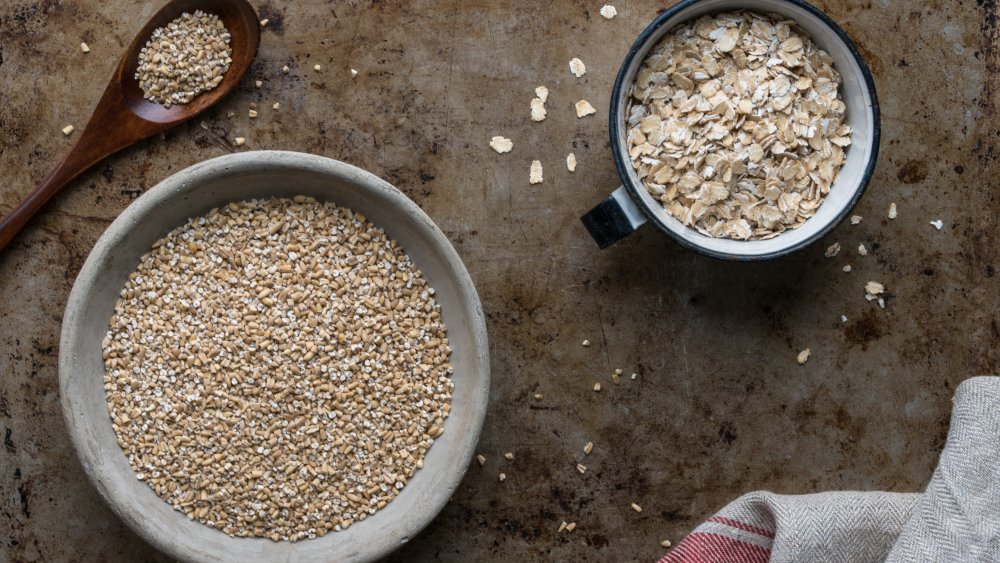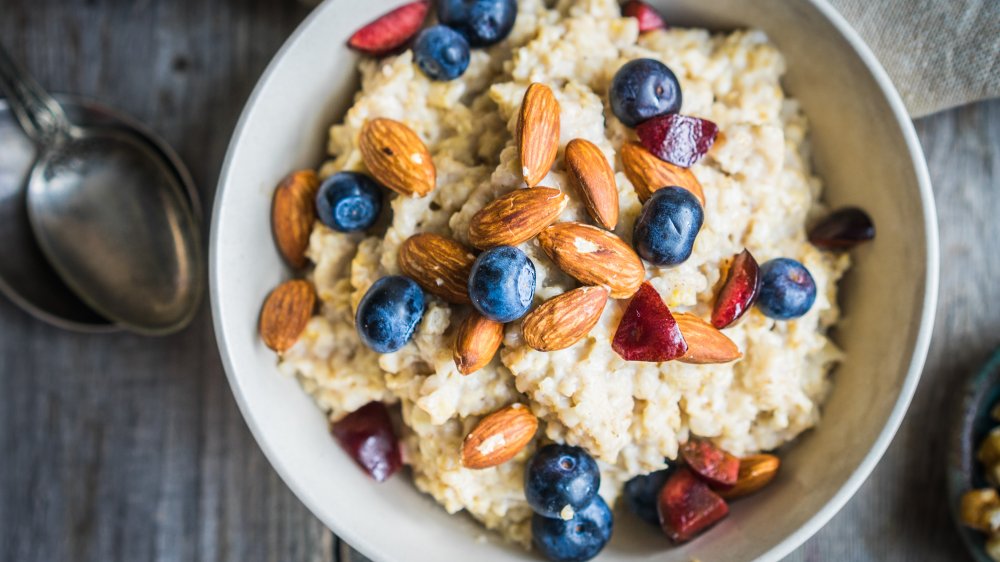Are Steel Cut Oats Really Healthier Than Rolled Oats?
Oatmeal is a breakfast staple with many options, and it's easy to become overwhelmed by all the choices, especially not knowing whether steel cut or rolled oats are healthier and make a better bowl.
Nutritionally, steel cut oats and rolled oats are the same. The biggest difference is the taste and texture, as well as cooking times. Oats begin as oat groats, which is the whole, unbroken grain with the outer husk removed. The processing comes next, and that's where the differences begin. Steel cut oats, also known as Irish oats, are oat groats that are cut into two or three pieces with large steel blades. No more processing is done (via SF Gate). As a result, steel cut oats have a longer cooking time of 20 to 30 minutes. Rolled oats, also known as old-fashioned oats, are processed by steaming and rolling the oat groats. This allows for a faster cooking time of about five to six minutes.
Quick oats, which are also a common option in the grocery store, are rolled oats that are chopped into smaller pieces. This allows for an even faster cooking time of only two to three minutes. Rolled oats can often be used in place of quick oats as long as a slightly longer cooking time is allowed.
Another difference between steel cut and rolled oats is the texture. Steel cut have a chewier texture, as opposed to quick oats, which have a creamier texture.
Steel oats vs rolled oats
Aside from the cooking time, there is little nutritional difference. Leslie Beck, a registered dietician, discussed the nutritional benefits of oats in her book Foods That Fight Disease. They are all 74 calories per half cup serving, containing three grams of protein and two grams of fiber. According to a Harvard University study, eating three servings of whole grain oats, whether steel cut, rolled oats, or quick oats, reduces the risk of having a heart attack by 30 percent. Oats in general are a carbohydrate that is rich in fiber, high protein, and contains many vitamins and minerals, as well as antioxidants (via Healthline). An additional benefit of oats is that they are gluten-free, making them an ideal breakfast staple for those who have gluten intolerance, such as those with celiac disease. The one caveat is that gluten can be added in processing, so make sure the oats you buy are labeled gluten free.
The brand you buy may make a difference in the nutritional value of your oatmeal. Many brands add sugars and flavors to their oatmeal, detracting from its nutritional value.
When baking, the difference in oats matters. In cookies or other baked goods, quick oats are usually preferred because the texture carries over to the finished product, but quick oats and rolled oats can be used interchangeably. As a rule of thumb, never use steel cut oats in baking unless the recipe specifically calls for it.

